Learn&enjoy
Scientific and social programme
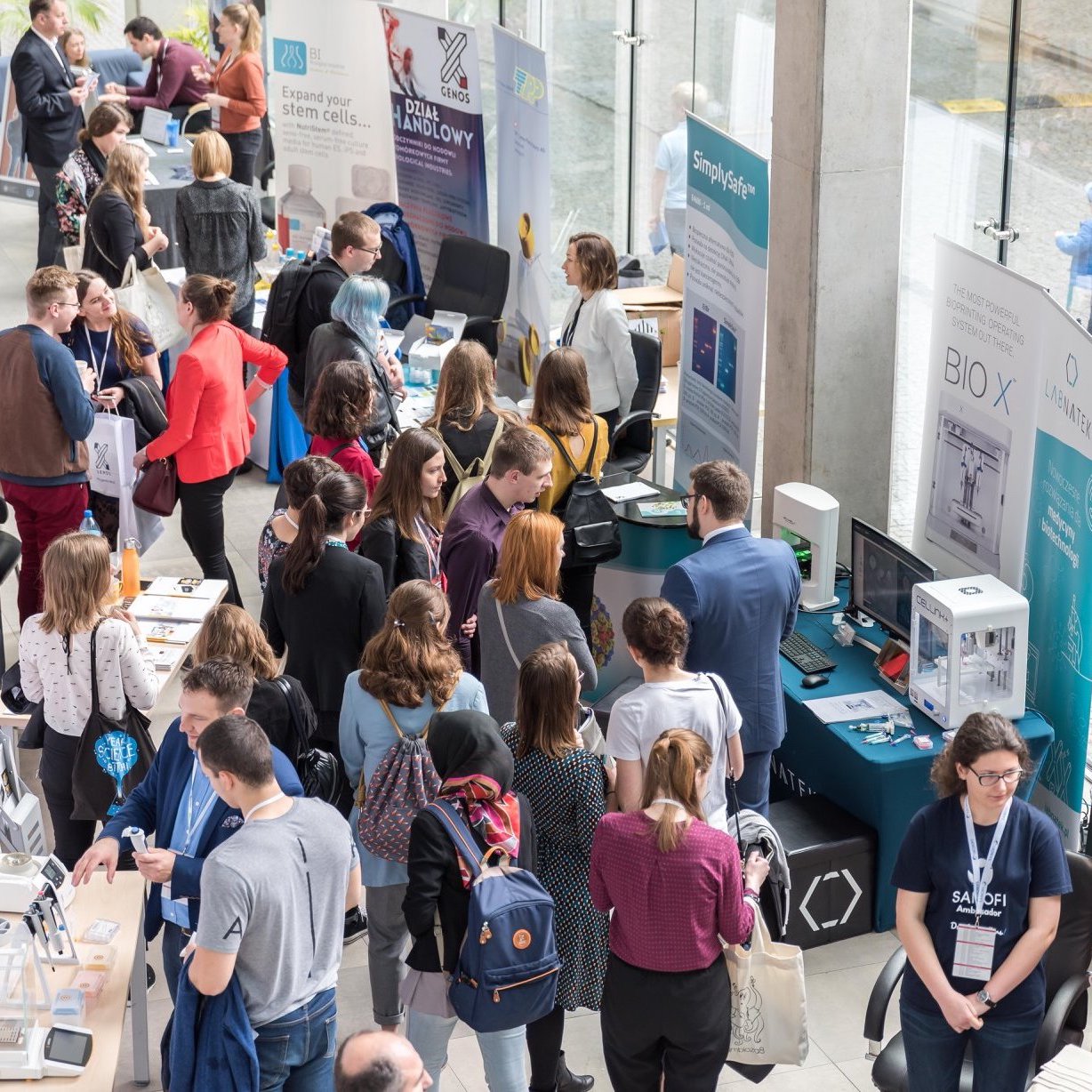
ooo
Keynote lectures
The lectures are given by highly-reputed scientists from all over Europe. Our goal is to bridge people of varying backgrounds and interests. Therefore, we aim at covering a wide variety of current topics within the biotech universum, at the same time making the lectures understandable to audiences regardless of their speciallisation or career stage.
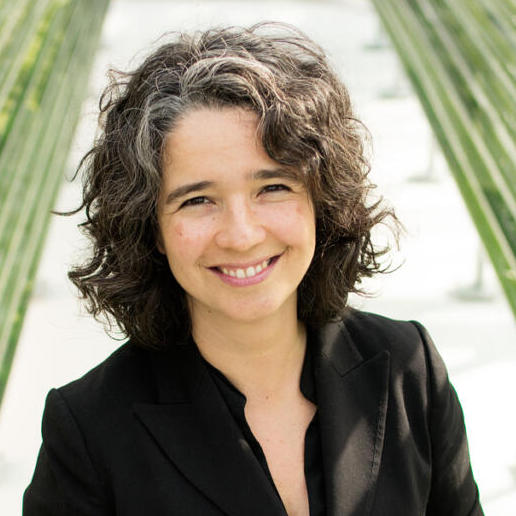
Prof. dr. Maria Barbosa
Wageningen University and Research Center (NL)
Hypes, Hopes, and the way forward for Microalgal Biotechnology
Lecture abstract
The urge for food security and sustainability has advanced the field of microalgal biotechnology. Microalgae are microorganisms able to grow using (sun)light, fertilizers, sugars, CO2, and seawater. The
About the speaker
Prof. dr Maria Barbosa is Professor in Bioprocess Engineering and is Director of AlgaePARC at Wageningen University and Research Centre, the Netherlands. She has been president of the Dutch Biotechnology Association (NBV) and is a member of the European Algae Biomass Association (EABA) steering group. She holds a Ph.D. in Bioprocess Engineering obtained at Wageningen University. She has worked at ETH (Swiss Federal Institute of Technology), Switzerland, IBET, and at EMBO (European Molecular Biology Organisation), Germany. She presently leads the group on microalgal biotechnology and coordinates several large research programs covering the entire microalgae production chain. Her scientific interests are in microalgae strain improvement, process design and scale-up.
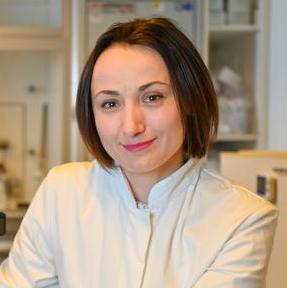
Prof. dr. Larysa Baraban
Helmholz-Zentrum Dresden & Technische Universität Dresden (DE)
Nanoelectronics for cancer immunotherapy
Lecture abstract
Still, the complexity of every individual cancer limits the efficacy of immunotherapy to a maximum of 20-40% of clinical patients [2]. Even if cancer genetics is correctly determined, complex and unique cancer ecosystems may prevent successful immunosurveillance. As the so-called cancer-immunity cycle – a set of processes the immune system does to eliminate cancer – is damaged in cancer patients, the task of immunotherapy is to repair the breaches in the immunity cycle, via ‘external’ support, either with mono- or combinational treatment. Thus, the main goal in the community is to achieve transformative treatment results for more patients, via better immune cancer phenotyping [3]. Nanosensor devices merged with biological species, e.g. cells or molecules of similar nanosize, offers a remarkable increase in biosensor sensitivity. Despite this success, nanobioelectronics is still underrepresented in the field of oncology. While the research area has addressed their potential applications in early cancer diagnosis less efforts have been dedicated to the therapy development and patients monitoring. In treatment monitoring, potential use cases are mostly limited by liquid biopsy, detection of circulating tumor cells or circulating tumor DNA. The recent works extend the borders of the silicon based nanosensor applications to the field of cancer immunology, i.e. contributing to the optimization of the novel CAR T cell immunotherapy for the prostate stem cell antigens as well as against fibroblasts activation proteins [4]. Here silicon nanowire field-effect transistors are used to pre-select targeting molecules for an adaptive CAR-T cell operation. Focusing on a library of seven variants of E5B9 peptide that is used as CAR targeting epitope, we performed multiplexed binding tests using nanosensor chips. The correlation of binding affinities and sensor sensitivities enabled a selection of candidates for the interaction between CAR and target modules. Furthermore, we demonstrate the ability to monitor the immunotherapeutic drugs in vivo, using the electronic platform.
In conclusions, the research landscape in the last few years has shown encouraging signs for nanoelectronics to be better represented in cancer research in near future. In particular, this approach can open new routes to perform a complex combinatorial analysis using tiny electronic chips and simultaneously screening multiple biochemical species thus facilitating the transition from conventional medicine to precision medicine in clinical oncology.
[1] “Cancer – fact sheet”, World Health Organization (website), Feb (2022).
[2] P. Sharma, et al. Cell 168 (4), 707-723 (2017).
[3] D.S. Chen, I. Mellman, Immunity 39(1), 1-10 (2013).
[4] T.A. Nguyen-Le, et al. Biosensors and Bioelectronics 206, 15 114124, (2022).
[5] T.A. Nguyen-Le, et al. Small Science 2400515, (2025).
Research is supported by the European Research Council (ERC) in frames of a Consolidator Grant (ImmunoChip, 101045415)
About the speaker
Prof. Baraban received her PhD in Physics from the University of Konstanz in 2008. Between 2013 and 2019 she led the “BioNanoSensorics” group within the Chair of Materials Science and Nanotechnology at the Institute for Materials Science and Max Bergmann Centre for Biomaterials, Faculty of Mechanical Science and Engineering, Technische Universität Dresden. In 2022, she received a prestigious ERC Consolidator Grant for the project ‘ImmunoChip’: Nano-assisted digitalizing of cancer phenotyping for immunotherapy (project number: 101045415).
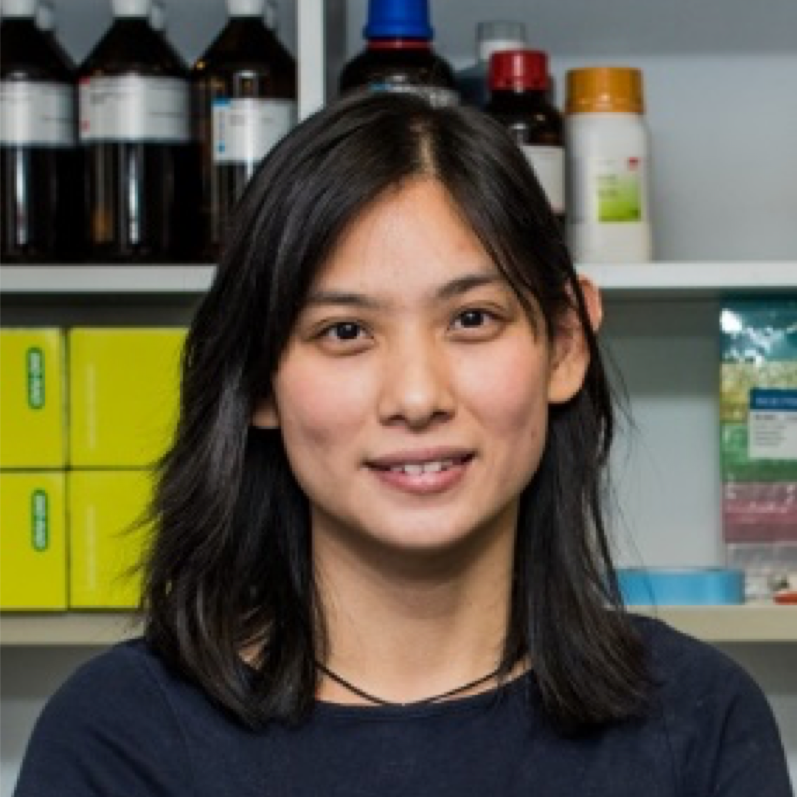
Dr. Cecilia Winata
International Institute of Molecular and Cell Biology, Warsaw (PL)
Decoding Heart Development and Disease Through Zebrafish Genomics
Lecture abstract
About the speaker
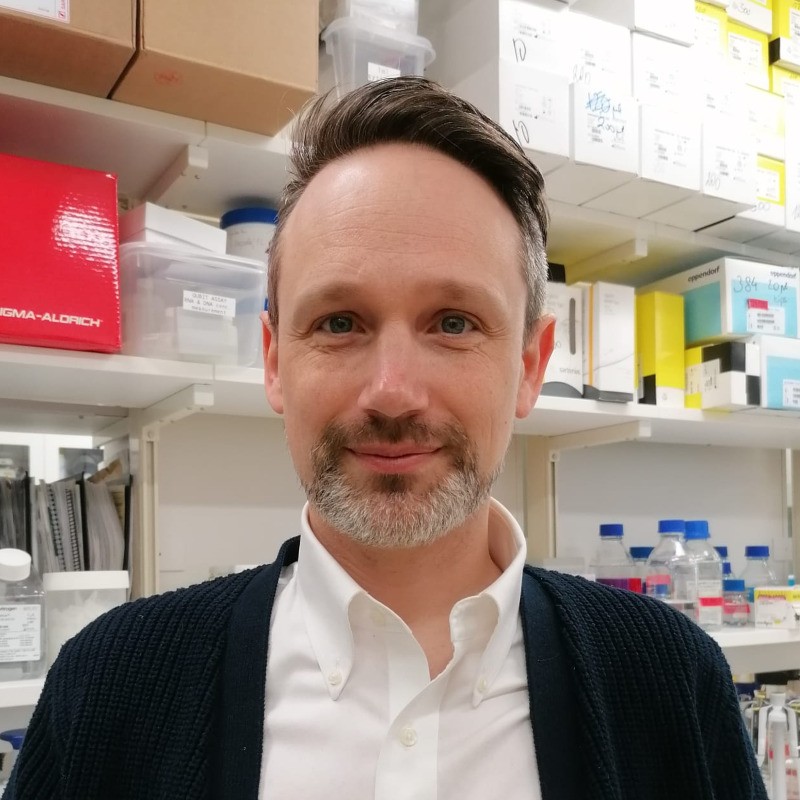
Dr. Kasper Karlsson
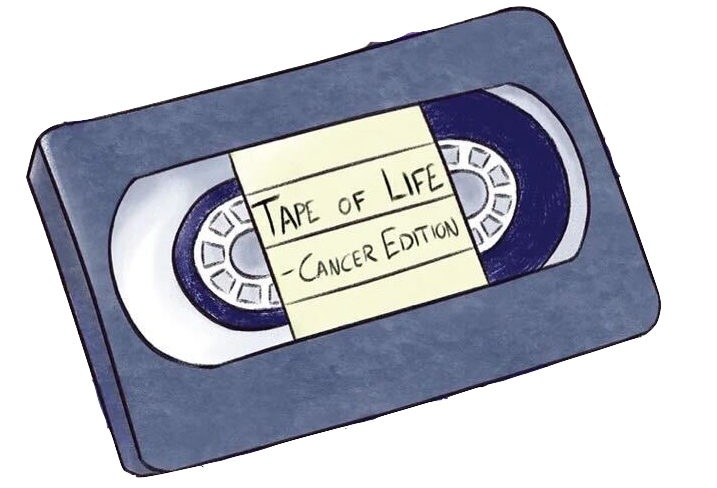
Karolinska Institutet, Stockholm (SE)
Winding back the tape of tumors
Lecture abstract
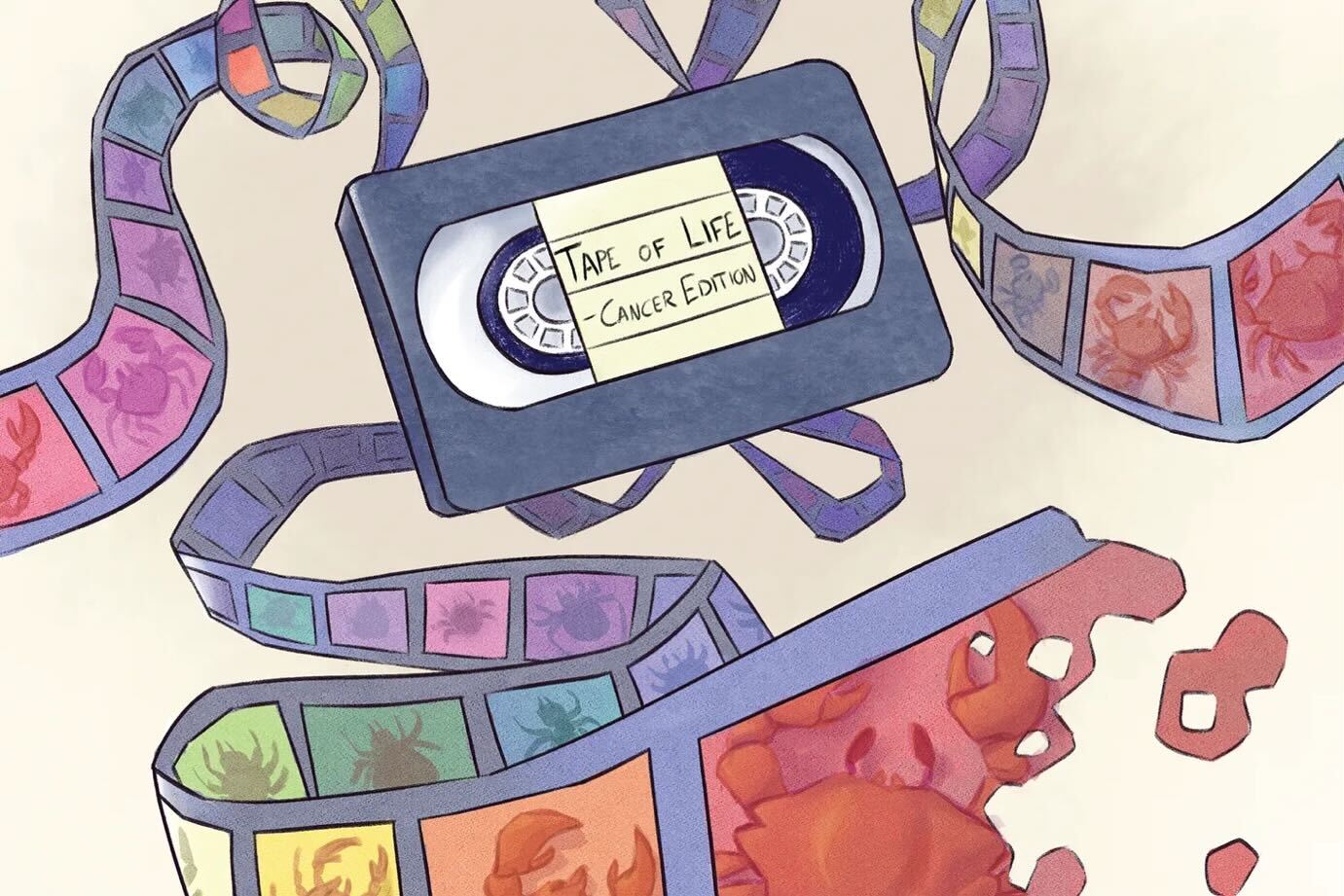
About the speaker
Dr. Kasper Karlsson started his research career and PhD in 2011 at Karolinska Institutet in Stockholm, Sweden, where he was part of the team that developed the unique molecular identifier strategy, now widely used in single cell sequencing experiments, to correct for amplification induced bias. In 2016 he moved to Stanford, USA, for his postdoctoral studies, where he developed in vitro model systems of tumor evolution. Using organoid technology, he showed that some aspects of early gastric tumor evolution can be recapitulated in cell culture models. Kasper is an assistant professor at Karolinska Institutet, where he develops new therapies and drug combinations for pediatric cancer, including the concept “Precision Lethality” where cell barcoding is used to identify and target cell populations that are resistant to standard of care with new drugs.
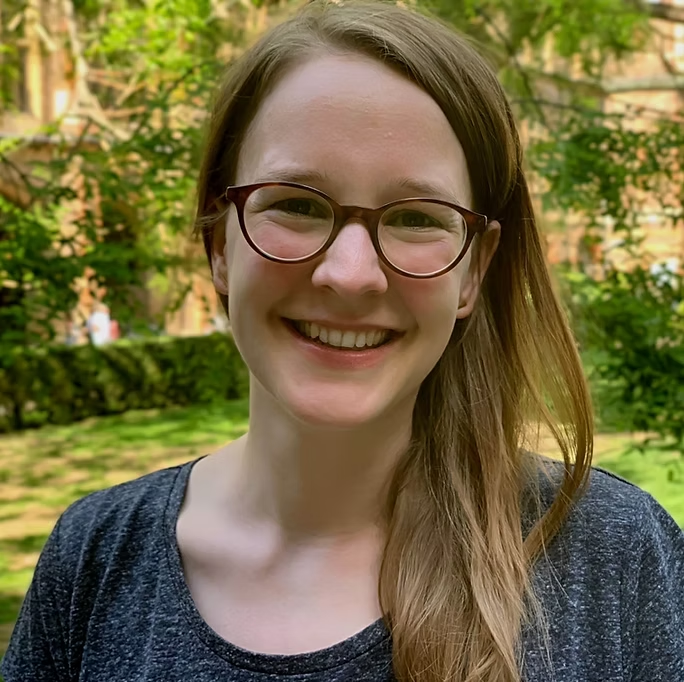
Dr. Leonie Luginbuehl
University of Cambridge (UK)
Understanding and optimizing the cost-benefit balance of plant-fungal symbioses
Lecture abstract
About the speaker
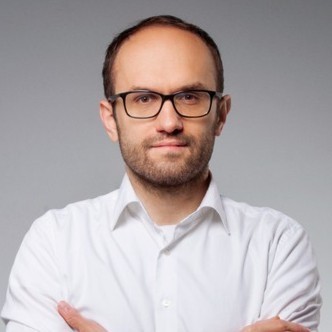
Dr. Tomasz Włodarski
Institute of Biochemistry and Biophysics, Polish Academy of Sciences, Warsaw (PL)
Unravelling protein folding in cells through a computational microscope
Lecture abstract
In our research, we use molecular dynamics simulations (“computational microscope”) enriched with experimental data from nuclear magnetic resonance spectroscopy (NMR) and cryogenic electron microscopy (cryo-EM) to provide new insights into cellular protein folding and how the ribosome shapes it. We structurally characterised the folding pathways by capturing the intermediates that emerge in co-translational folding, but are surprisingly absent in vitro.
Thanks to recent advances in cryo-EM, the so-called “resolution revolution”, we now have access to structural snapshots of 66 ribosomes from a range of organisms and organelles. By combining these structures with models obtained through breakthroughs in machine learning, exemplified by AlphaFold, we can now start to explore the structural and sequence heterogeneity of ribosomes and their potential influence on protein co-translational folding. Specifically, we have focused on the ribosomal exit tunnel, a long conduit through which the nascent polypeptides reach the outside of the ribosome.
To analyse the geometric features of ribosomal exit tunnels in various structures, we have developed a computational method based on the nascent chain molecular dynamics simulations. With this approach, we characterised the nascent chain pathways in the tunnel and how they change between species and at different stages of biosynthesis. We also performed an extensive bioinformatics analysis of the sequences of proteins forming this ribosome tunnel to comprehensively describe ribosome heterogeneity and investigate the link between the ribosome and the proteome it synthesises.
About the speaker
During his postdoctoral research, funded by an EMBO Long-Term Fellowship, he worked at University College London in the group of Prof. John Christodoulou, and at the University of Cambridge in the group of Prof. Michele Vendruscolo, developing all-atom and coarse-grained molecular dynamics simulations to study protein folding on the ribosome, guided by experimental restraints from NMR and cryo-EM data.
He recently returned to Poland with the POLONEZ BIS grant from the National Science Centre to lead the project “Co-translational protein folding in the light of ribosome evolution”, which integrates bioinformatics, multi-scale molecular dynamics simulations, and machine learning to investigate ribosome heterogeneity, particularly at the exit tunnel, and its influence on co-translational protein folding.
ooo
Discussion panels
‘Symbioza’ aims to create an inspiring space for brainstorming and talking over topics related to soft skills and daily lives of (life) scientists. We believe that meetings like this are the source of innovation and are essential to creating a vibrant community. This years’ topics will include:
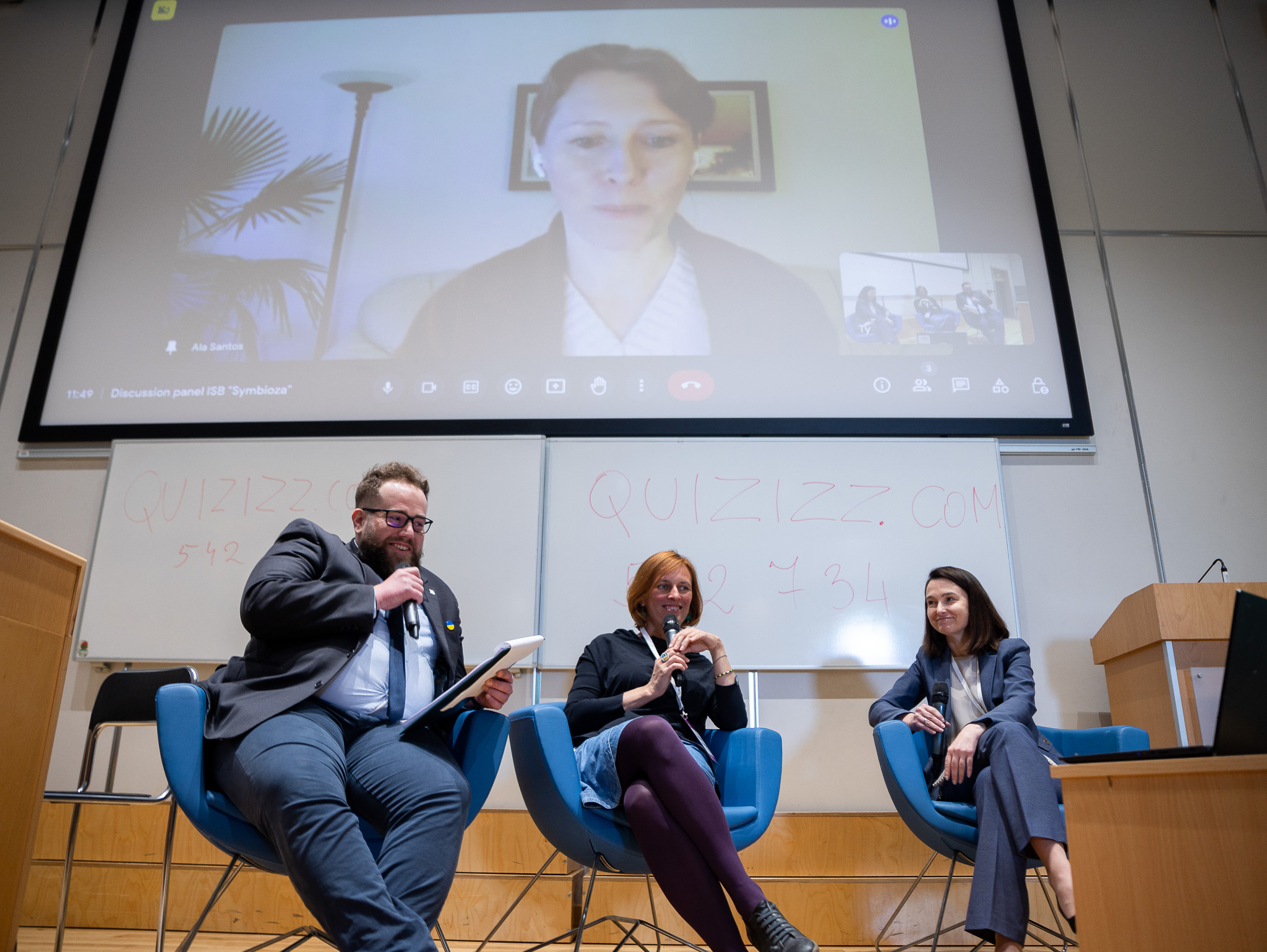
D-1: The impact of scientists on science and society in turbulent times
Panelists: Kasper Karlsson (Karolinska Institutet Stockholm), Larysa Baraban (TU Dresden), Marcin Szymon Filipiak (TU Warsaw), Rafał Derlacz (Polpharma Biologics).
Moderator: Bartłomiej Gutkowski
Panel details
D-2: Future is now – support and development of Polish biotechnology
Panelists: Gajane Żurawska (Bacteromic), Maciej Gołaszewski (BioCloner Health), Aleksandra Izdebska (University of Pau and Adour Countries).
Moderator: Klaudia Staśkiewicz
Panel details
ooo
Sessions of short talks
We invite the participants to present their research as a short talk (1o minutes + 5 minutes for questions). The talks are scheduled for each conference day in two parallel sessions. Best presentations will be rewarded with diplomas and prizes. The sessions are also a great opportunity to speak with authors, and exchange ideas.
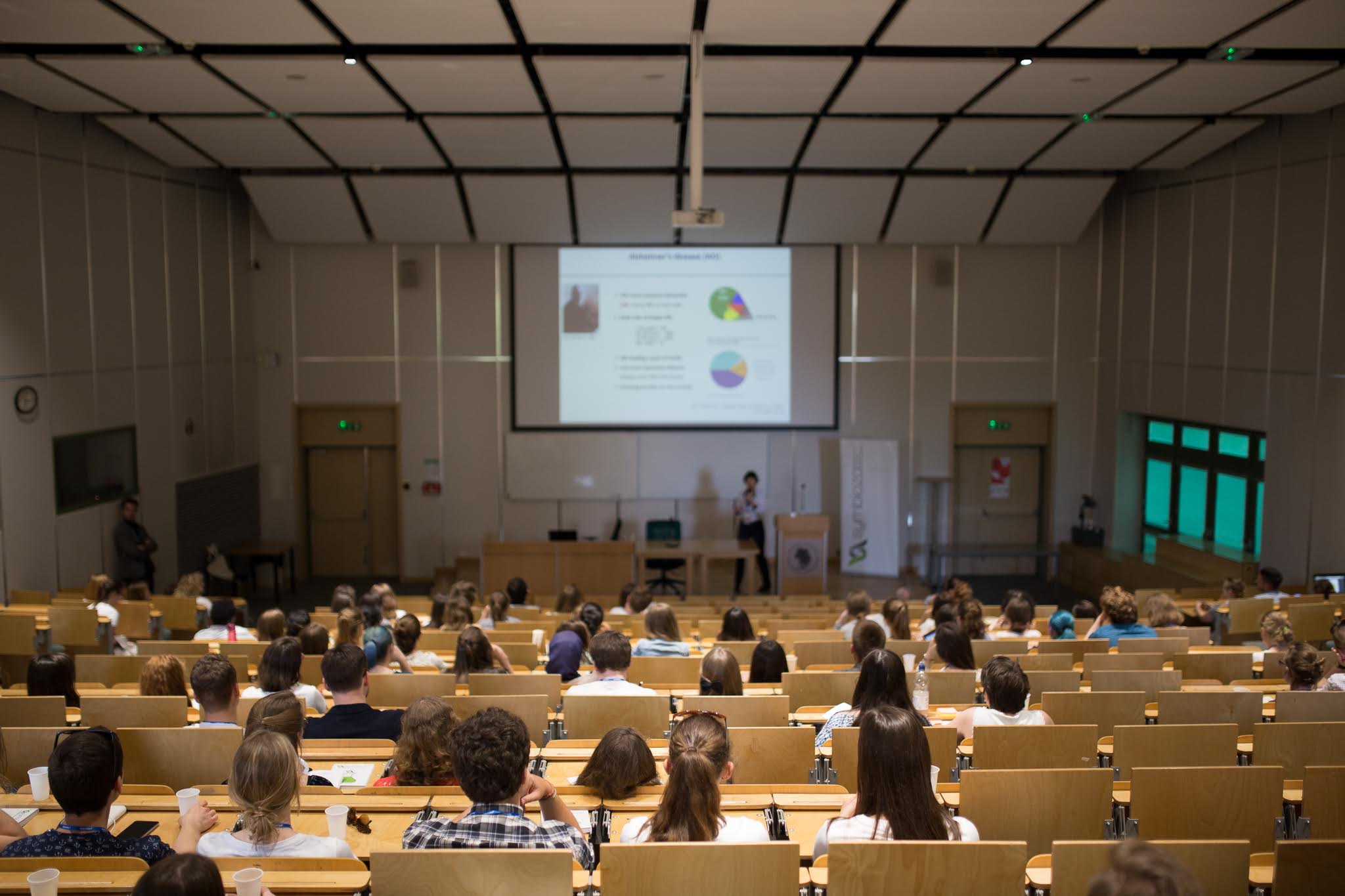
ooo
Poster sessions
We invite the participants to present their achievements in the form of a scientific poster. Two poster sessions are previewed – on Saturday, and Sunday. However, we encourage the authors to display their work for the whole conference day. Best posters will be rewarded with diplomas and prizes.
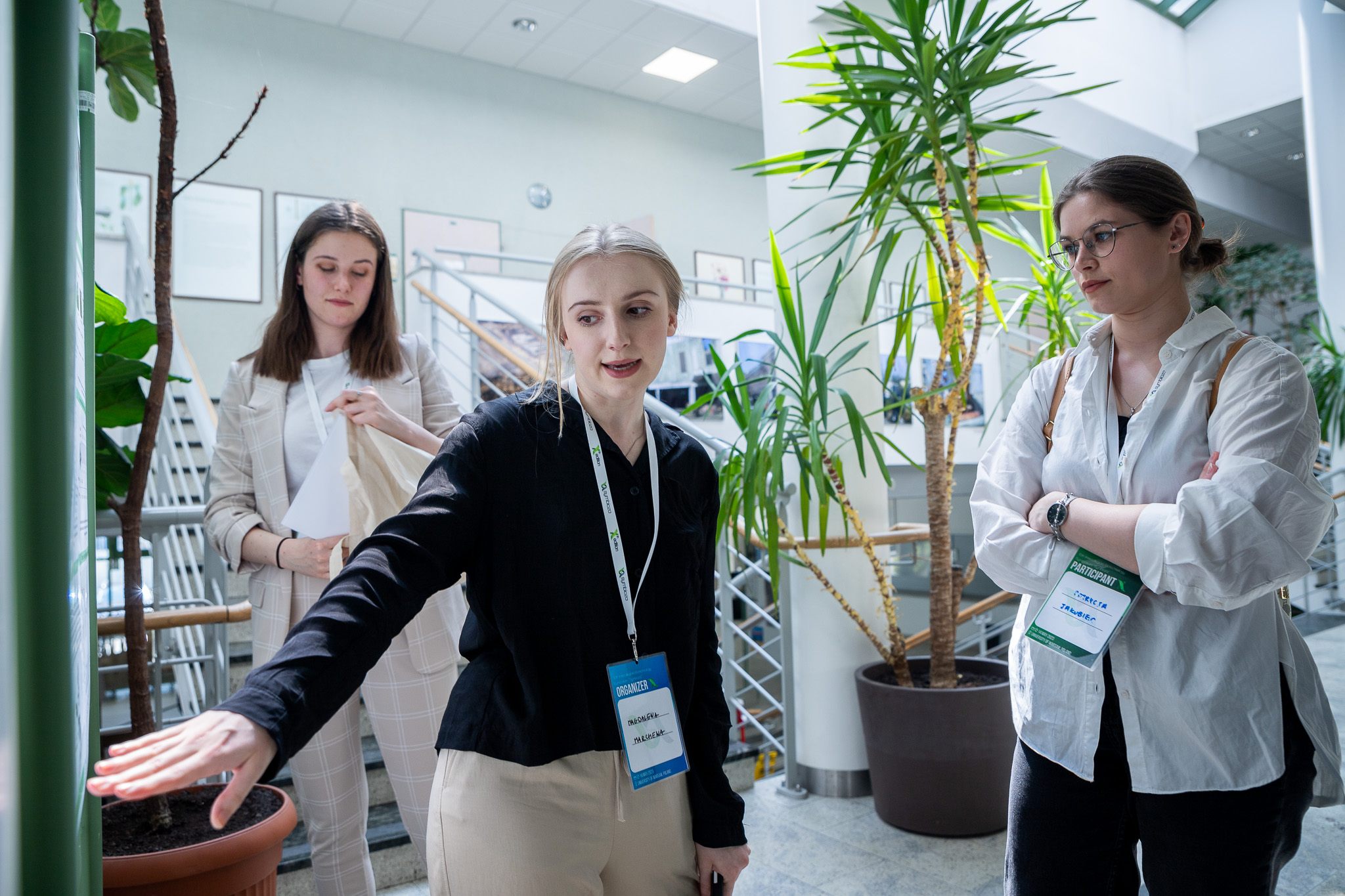
ooo
Workshops
Due to limited number of spots registration is required for each workshop. A registration form will be emailed to all on-site participants.
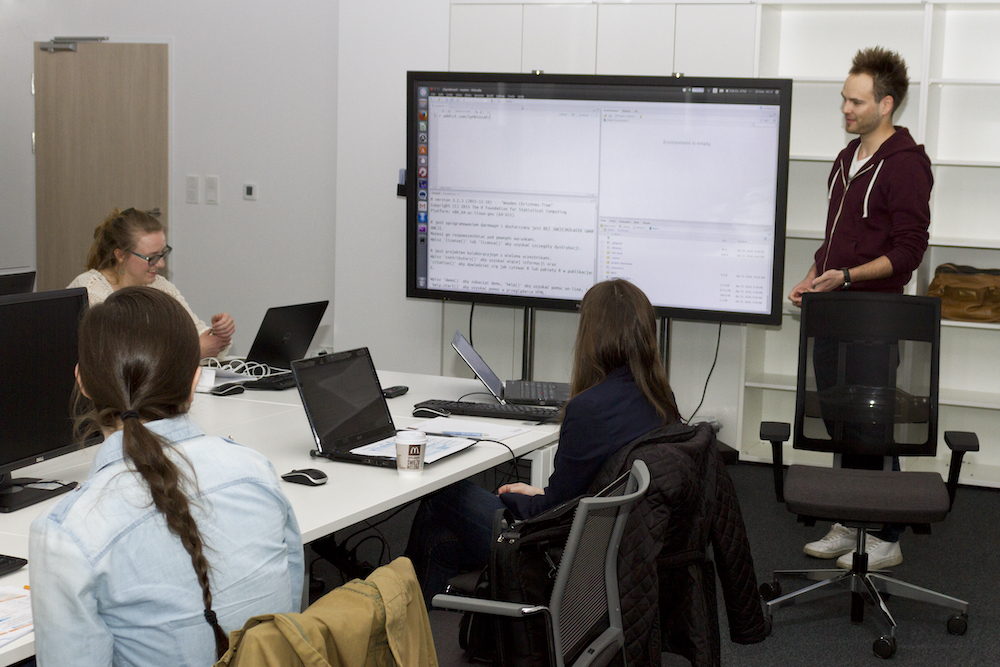
W-1: On the production line – you decide
Trainers: Małgorzata Ulanowicz, Emilia Cywińska (both Bioton)
Workshop details
Available spots: 60
W-2: Design thinking in biotechnology
Trainer: Wiktoria Frączek (Warsaw University of Life Sciences)
Workshop details
A moment to ask not what we can build but what truly matters, and for whom. This workshop invites you to take on a real-world challenge from the field of biotechnology — something messy, complex, and unsolved, like hospital-acquired infections and antibiotic resistance. You’ll step into the shoes of people affected by the problem, from healthcare workers to patients, and work in small teams to use the design thinking process to uncover human needs behind technical issues, generate bold ideas, and quickly build and share a prototype. You’ll have the freedom to shape your ideas in whatever way helps them come alive and makes them visible to others. This is not about having the right answer — it’s about asking better questions, thinking with your hands, and creating with purpose. You’ll move fast, think hard, test ideas, and make choices, all within 90 minutes.
If you’ve ever felt that science could be more human, more intuitive, more connected — this space is for you.
Available spots: 16
W-3: Bioinformatics essentials: Programming the flow of genetic information
Trainer: Michał Stanowski (University of Warsaw)
Workshop details
Available spots: 16
W-4: Basics of bioprinting with BioCloner Health
Trainers: Julia Talecka, Jakub Knap-Wardzyński (both Biocloner Health)
Workshop details
Available spots: 16
ooo
Industry zone
We gather leaders in the biotech industry represented by both Polish and global companies. Meet with experts, our partners and sponsors, ask questions and find your way into the biotech industry. The zone is prepared thanks to cooperation with Bioton, Polpharma, Bacteromic, and Mabion.
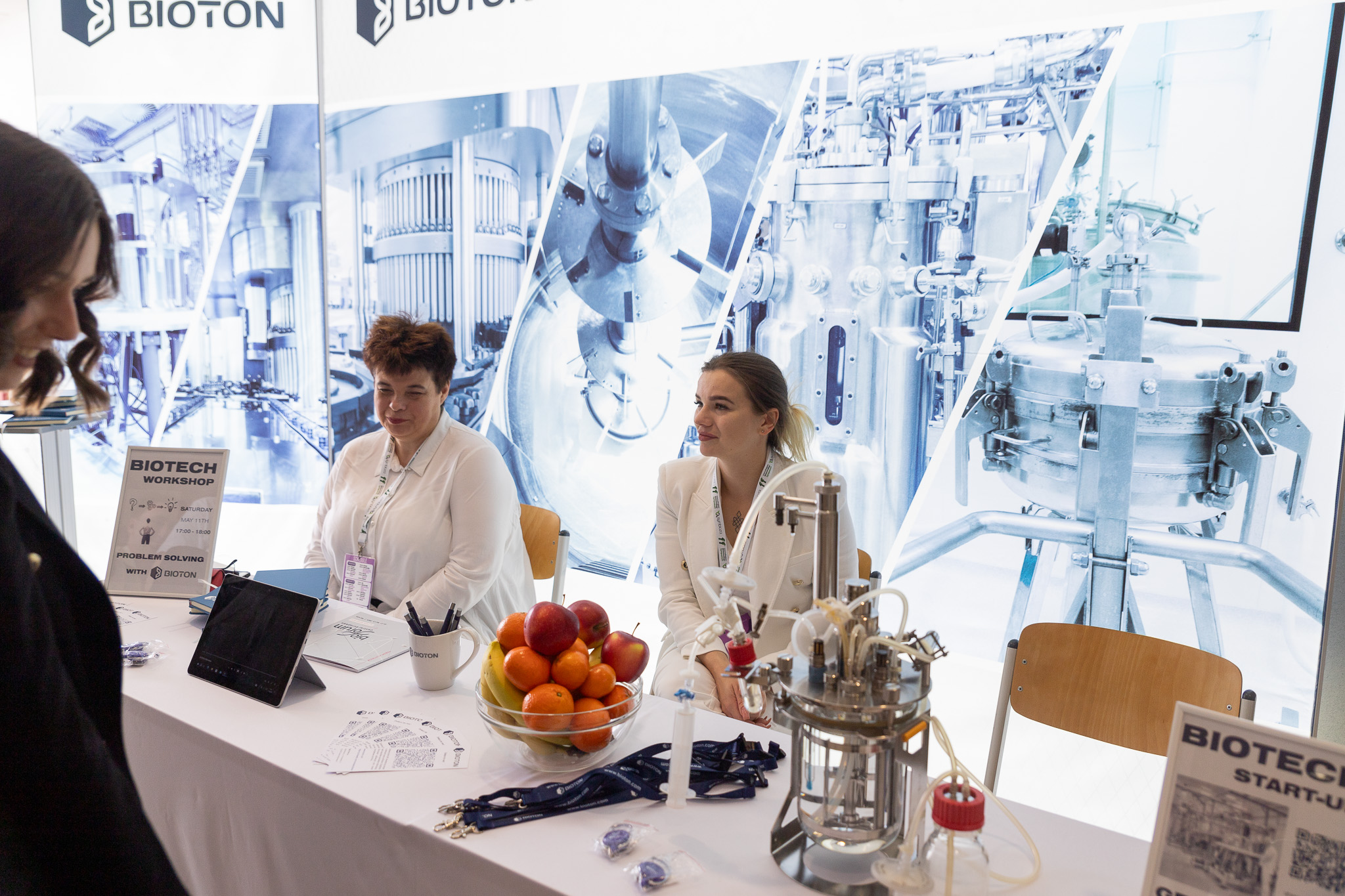
ooo
Social programme
Our lives are not just about pipetting! We know how important integration is, so you can expect social events on both conference evenings:
1. Urban game – evening of the 1st conference day
2. Conference get-together – evening of the 2nd conference day
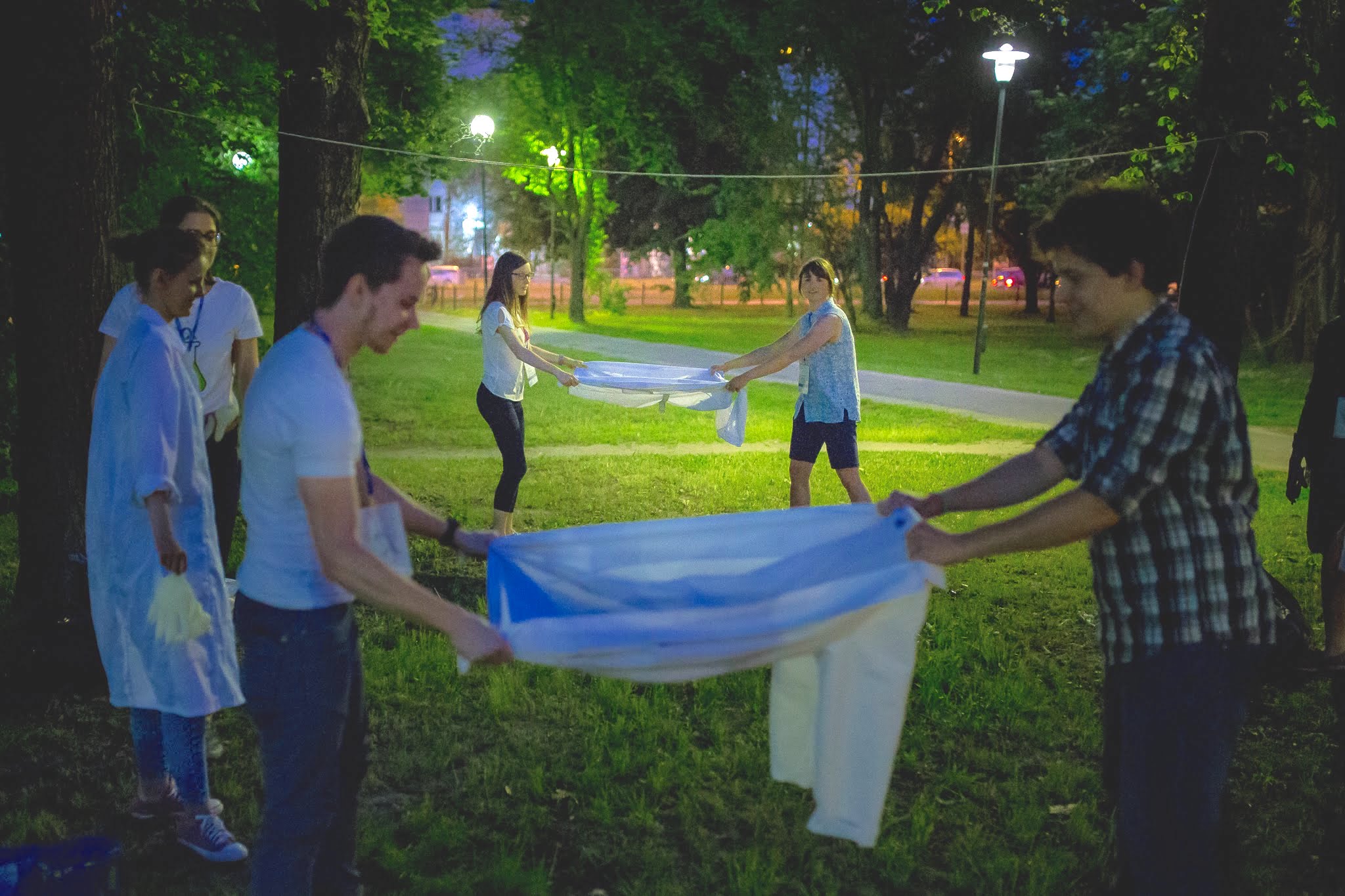
ooo
Networking
‘Symbioza’ is a perfect place to meet like-minded people. We aim at creating a space for networking, talking, learning and playing together. Every coffee and lunch break is a new opportunity to bond.